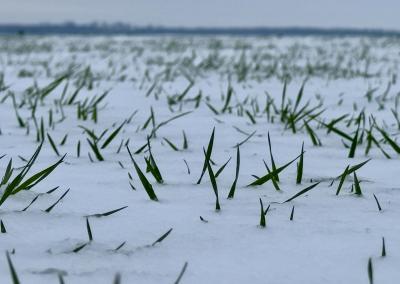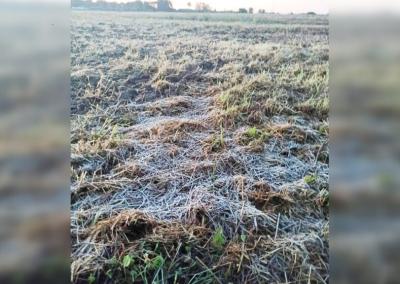Spring frosts: it's important not to delay and to record the damage
Spring frosts can cause a lot of damage to flowering orchards and fruit trees. Farmers whose orchards or gardens will be adversely affected by frost should therefore write to their municipalities to identify the frost damage. In addition, frost is classified as an exceptional circumstance – a meteorological phenomenon with a significant impact on the fulfilment of obligations (where the proper fulfilment of obligations is impossible).
Ministry of Agriculture has asked municipalities to respond to possible reports of frost damage from farmers, i.e. damage assessment commissions set up by municipalities should objectively assess and document the damage that may have occurred.It is important to be aware that beneficiaries implementing projects financed under the Lithuanian Rural Development Programme 2014–2020 and/or participating in the interventions of the Lithuanian Strategic Plan for Agriculture and Rural Development 2023–2027 are exempted from the application of the sanctions in case of non-compliance with the commitments undertaken and/or the requirements laid down in the legislation as a result of force majeure or exceptional circumstances.
Beneficiaries participating in measures under the above programmes and unable to meet their commitments and/or legal requirements due to frost could therefore be exempted from their commitments.
Beneficiaries should inform the National Paying Agency (NPA) of frost damage within 15 working days of becoming aware of it. They should also provide the NMA with documentation proving that such circumstances existed and that they prevented the beneficiaries from complying with the commitments and/or legal requirements entered into.















































































































